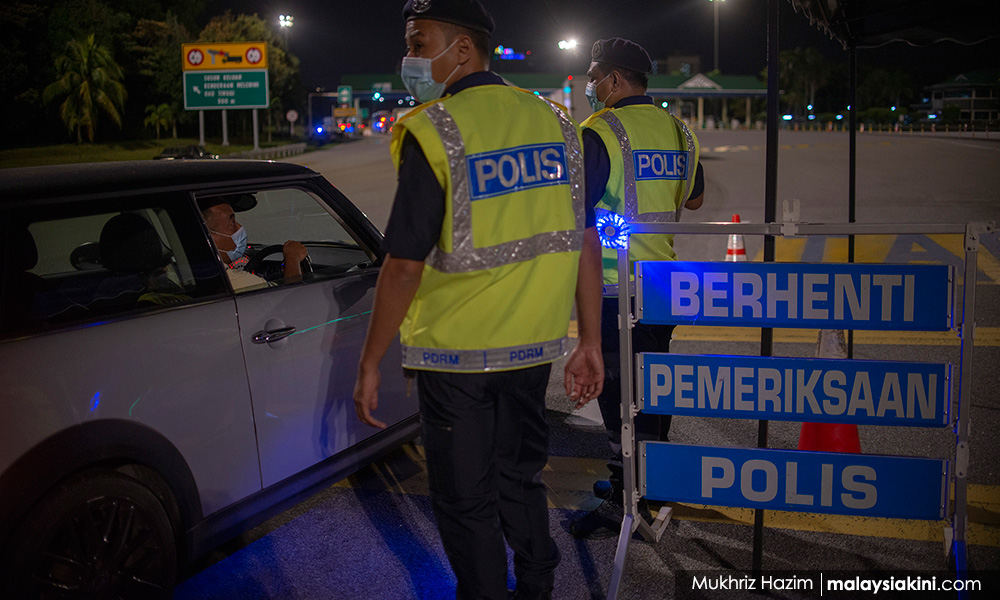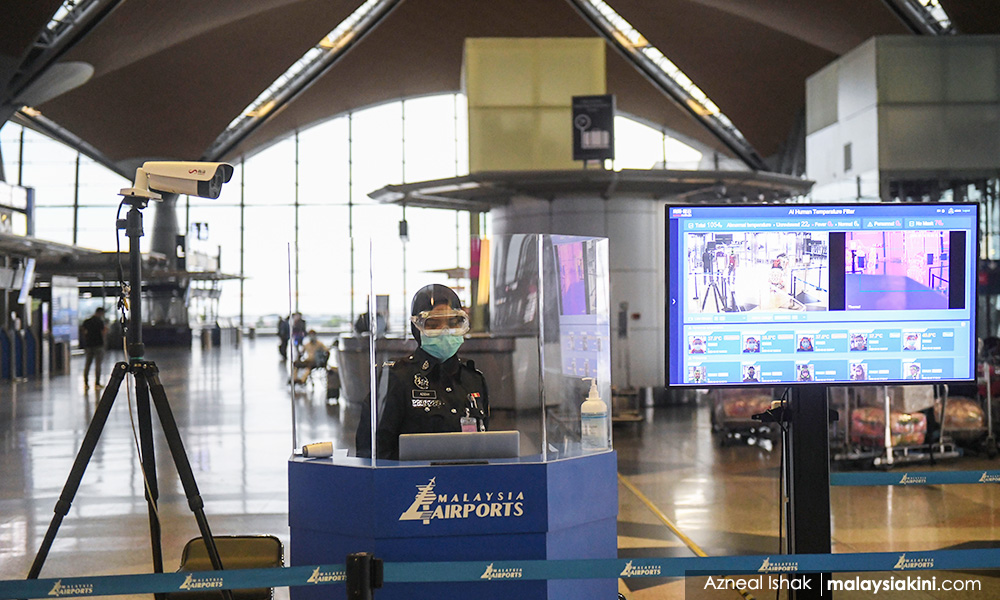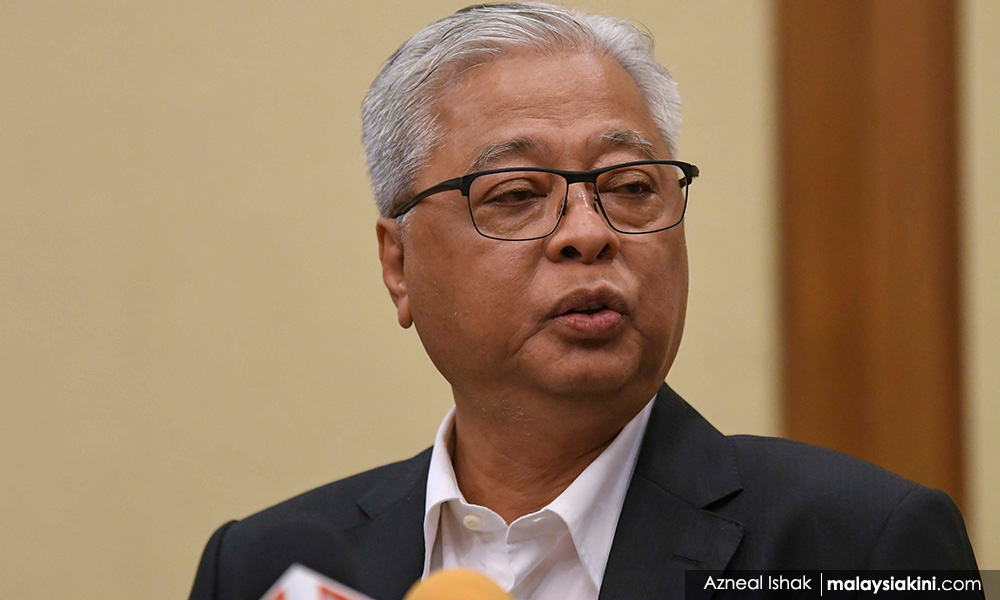Tomorrow marks a year since the Covid-19 pandemic hit the country with the first case involving three Chinese nationals who entered Malaysia via Johor from Singapore on Jan 20, 2020.
During the first wave, the majority of the Covid-19 cases were imported and did not involve Malaysians, while the infection during the second wave involved local transmission with the first case reported on Feb 4, 2020.
It was during the second wave that the government imposed the movement control order (MCO), beginning March 18 with strict standard operating procedures (SOP) and a few months later, when the infection showed a declining trend, the government loosened the SOP slightly with the introduction of the conditional MCO from May 4, followed by the recovery MCO on June 10.
However, due to complacency, the virus returned with the third wave and the government had to re-enforce the recovery MCO in most states beginning last October. When the number of cases kept increasing, the government had to re-enforce the MCO, starting with six states and subsequently, nationwide, except Sarawak.
As of yesterday (Jan 23), the cumulative number of cases reported was 180,455, with 42,769 active cases, meaning the country is expected to continue to record high daily figures.
A total of 667 deaths due to Covid-19 have been recorded so far.
One thing that should be acknowledged is that the government has implemented various initiatives, advocacy and regulations in the country on the advice of the Health Ministry.
During this period, Malaysians are informed almost every day on the latest developments pertaining to the Covid-19 infection, especially by Senior Minister (Cluster Security) Ismail Sabri Yaakob and Health director-general Dr Noor Hisham Abdullah.
It has been a year, and issues on Covid-19 pose the main challenge to the country, not only in terms of health, but its impact on the economy.
Recently, during an exclusive interview with Bernama journalist Thivyamalini Ramalu at his office, Ismail, the minister responsible for the issue on addressing Covid-19 from non-health aspects, shared his views and experiences on the challenges of managing the pandemic, especially on the implementation of the prescribed SOP during the MCO, conditional MCO and recovery MCO period.
The following is the transcript of the interview:-
Bernama: The Covid-19 epidemic has hit Malaysia for a year. Since March last year, the government has implemented the MCO, followed by the conditional MCO and recovery MCO.
Initially, the effort seemed successful in reducing the number of cases, but it became critical to an extent that MCO was enforced again. What caused the increase in infection?
Ismail: At that time (March 2020), the people were too scared of Covid-19. When the government said 'stay at home, do not go out', almost all citizens obeyed and there was less violation of SOPs. But over time, (maybe) the people felt that life was back to normal because there was no MCO and even the government started to provide relief gradually.
Almost all economic sectors were opened and even social activities, such as the holding of feasts and sports activities were allowed, causing the people to feel safe from Covid-19. Although the regulation to wear face mask was observed, mass group activities still took place, especially during the Sabah election.
Physical distancing was almost not complied with. At that time, one of the reasons for the increase in cases in Sabah was due to foreign migrants and spread in the next community, subsequently to the peninsula, after the state election ended.
Bernama: What was the public rate of compliance with the MCO SOP?
Ismail: Based on a study conducted by Universiti Teknologi Mara, almost 95 percent of the people complied with the SOP on the use of face masks. It has become a new culture, even in the village, even though it is not emphasised.
But the Health Ministry thinks that wearing a face mask alone without physical distancing is not enough. We see most places, like restaurants, for example, there is no physical distancing. This is the most dangerous.

Bernama: Many say that the cases increased again when interstate movement was allowed, including for holiday. What is your opinion on this?
Ismail: Interstate crossing may have been involved in that, but in terms of the largest contributors of cases, they are foreign workers in the manufacturing sector, which is why they are required to undergo Covid-19 screening test.
Secondly, it’s the workers at the construction site. So, we focus on these problems by providing conducive housing for workers and so on. As for the Covid-19 case due to interstate crossing, it is just one of the contributors of cases and not the largest contributor.
Bernama: How is Covid-19 seen able to discipline the people, as well as making them adapt to new norms?
Ismail: It can be said that there is already awareness in society, just look at the malls, there are less people and they know if there is no need to go out, there is no need to leave the house, let alone bring small children along.
So far, the use of face masks is obvious and we see people starting to change their way of life and with more discipline, for example, bowing respectfully to avoid shaking hands or contact.
The issue is physical distancing because they believe by wearing the face mask, being at a close distance with others is not a risk.
Bernama: The SOP on physical distancing is clearly difficult to comply with and what is the action by the authorities to instil awareness about it?
Ismail: Firstly, we can only remind the people. Despite being reminded by me and the Health DG on the SOP compliance, every day there will be dozens of people being taken action against for failing to comply.
Secondly, it is a legal action, with its own punishment and the third, is self-awareness. There are police officers who are gentle and use their discretion, but sometimes they have no choice, resulting in penalisation.

Bernama: On the country’s border, when will it be opened?
Ismail: We will not open the border so quickly because other countries are also facing the Covid-19 pandemic. Although the government recently planned to open its borders for some countries through the green zone travel bubble, but it was put on hold.
This is because it is Malaysia that intends to do so, but what about other countries that will not allow Malaysians to travel to their country? The United States has also issued a directive for its citizens to consider travelling to our country due to the high Covid-19 case.
I think, this matter on the border will be the last to be opened because otherwise, cases from other countries will enter and spread here. For example, we still stop students from the United Kingdom who study in this country (to come). Other students are allowed to enter through strict SOP.
- Bernama





No comments:
Post a Comment
Note: Only a member of this blog may post a comment.